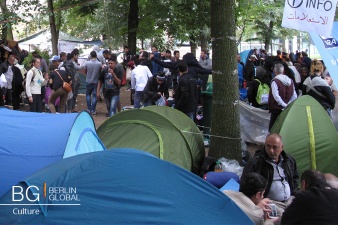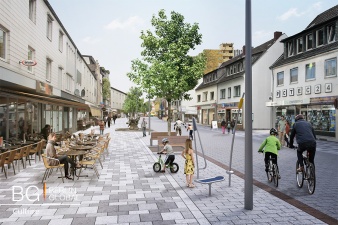Difference between revisions of "The Refugees Accommodation"
(Created page with "<i style="font-size:17px"> German Citizens Concern About the Costs </i> <span style="color:#e50033;">'''April 19th, 2016'''</span> File:German_Citizens_Concern_About_the_...") |
(No difference)
|
Latest revision as of 14:40, 19 April 2016
German Citizens Concern About the Costs
April 19th, 2016
New public campaigns have been undertaking in several German cities to protest against the excessive costs of the shelters for refugees. This attitude is not to be confounded with racism; rather, German citizens are concerned about the alleged waste of money they incur in. In particular, complaints come from the city of Wesseling, a small town between Cologne and Bonn, where apparently the city council decided to provide refugees with shelters and housing, using the funds coming from the state of North-Rhine-Westphalia.
New public campaigns have been undertaking in several German cities to protest against the excessive costs of the shelters for refugees. This attitude is not to be confounded with racism; rather, German citizens are concerned about the alleged waste of money they incur in. In particular, complaints come from the city of Wesseling, a small town between Cologne and Bonn, where apparently the city council decided to provide refugees with shelters and housing, using the funds coming from the state of North-Rhine-Westphalia.
The plan was to build 28 houses that should have hosted 300 refugees. The mayor of the city showed transparently the costs this operation should have, and, as in other cities (Berlin, Brühl) the cost to provide houses to refugees was less expensive ($25,000 per occupant against $6,700 per occupant). The main difference which also explains the diverging costs between Berlin and Wesseling is the type of houses they want to build: The mayor of Wesseling indeed, state that his purpose is to build new and permanent accommodations that can host at least 12 persons per house.
The controversy arises since, as it is quite likely, some of the refugees will eventually come back home to re-build their own towns, therefore the German citizens’ complaints can be reasonably understandable. Moreover, in big cities such as Hamburg and Essen, people are worried about the large-scale housing developments since it can create a sort of “ghetto”, hindering the possibility of integration among refugees and the local citizens, as it happens many times all across Europe.
The public campaign in Wesseling brought a positive result, as the citizens’ initiative led to the postponing of the houses for refugees’ construction. New uploads will be drawn on this topic later on, so far this is the actual situation in Wesseling.
See more at: http://www.berlinglobal.org/index.php?the-refugees-accommodation


